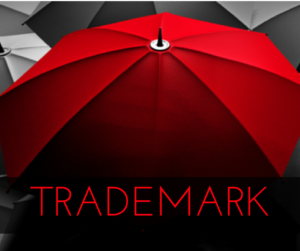This is another one of those questions I’m asked frequently:
“Is it okay to use a trademarked name or brand name in my marketing copy?”
Answer? It depends.
But in the spirit of extreme caution, NO!
One of our author’s over at BOOK to BUSINESS™ wanted to use the word “Bandaid” in the title of her book. She was told “absolutely not” by the owners of the Band-Aid brand, Johnson and Johnson.
 However, “it depends” is almost always the answer to any legal question, because there are almost always several factors to consider. In the case of the question presented here, there are at least four areas of law that must be given careful consideration:
However, “it depends” is almost always the answer to any legal question, because there are almost always several factors to consider. In the case of the question presented here, there are at least four areas of law that must be given careful consideration:
TRADEMARK INFRINGEMENT
Trademark infringement is the unauthorized use of someone else’s trademarked name, slogan, fictional character, and/or brand identity in a way that would cause a “likelihood of confusion” as to who owned the mark. If, however, you’re using the brand name to reference or identify the brand itself, with no intention to identify it with your own brand, then you are likely not infringing on someone else’s mark. This is referred to as “nominative fair use.”
TRADEMARK TARNISHMENT
Trademark tarnishment occurs when a writer depicts another brand name, product, or fictional character in a way that tarnishes that brand’s reputation. Parody is a defense to trademark tarnishment.
TRADEMARK DILUTION
Trademark dilution gives the owner of a mark the right to stop anyone from diluting the mark by using it in a way that makes it less “distinctive” and more generic. Examples include, Xerox, Kleenex, and Google. Examples: “I’m going to google (search) that.” “Can you xerox (make a copy) this document?” “Pass me a kleenex (tissue), please.”
DEFAMATION
Defamation is perhaps the most serious concern when it comes to negatively portraying a brand name or product because it has the potential to destroy a brand’s image. A trademark owner can successfully claim defamation if he or she can prove that the public perceived the disparaging portrayal of the mark as fact, not fiction.
LEGAL-EASY SUMMARY
In a nutshell, you want to give careful consideration to the likelihood of damaging a brand’s reputation in any way. If there is such a chance, do not proceed. It’s not worth the risk.
For example, if you’re writing a book and you’re talking about someone who needs to blow their nose, use the word “tissue” instead of Kleenex. Why? Because if your book ever became a bestseller such that it caught the attention of the famous tissue brand, Kleenex might sue you if it could argue that you profited from using its name.
Now, before you say, “I’ve seen that done all the time, in books and on the big screen,” yes, that is true, but those big brands have given permission, licenses, or required some sort of compensation (royalties), in exchange for the use of their branded names and products. In fact, big brand companies have legal departments dedicated specifically to protecting their brands’ identities.
STICK TO THE FACTS
You are able to use a brand or company name if what you are writing is based in fact. For example, the main character drives a “Mercedes.” Or, if you’re writing about weight loss and you want to refer to companies like Weight Watchers, Nutrisystem, or Jenny Craig, you can use them as long as the use is for editorial purposes and you accurately depict the brand. You want to be careful not to tarnish the brand’s name and/or identity. This doesn’t mean you can’t have an opinion about the brand, it means you cannot tarnish the brand by making false claims.
The test is not whether you would make money by using the trademarked brand but rather, how you’re using the brand to make money. This comes down to editorial use vs. commercial use.
Website articles (including blog posts), poems, short stories, and novels are considered editorial content, when they are newsworthy, informative, or telling a story. You are able to use trademarked names for editorial purposes.
Commercial content is writing that is intended to promote or advertise. If you use a trademarked brand in your advertising or promotions, without permission, you are profiting from that brand’s identity. That’s a form of free-loading and it’s not permissible.
It’s the difference between: “Why Weight Watchers Is Considered One Of The Best Diets” (editorial use), vs. “Buy My Diet Program, Based On Weight Watchers, And Lose Weight” (commercial use).
In short, if what you’re writing about is intended to promote your product or service by referencing other brand-name products or services, then that is commercial use. You need to either get permission or licensing rights, or don’t use the brand name at all.
